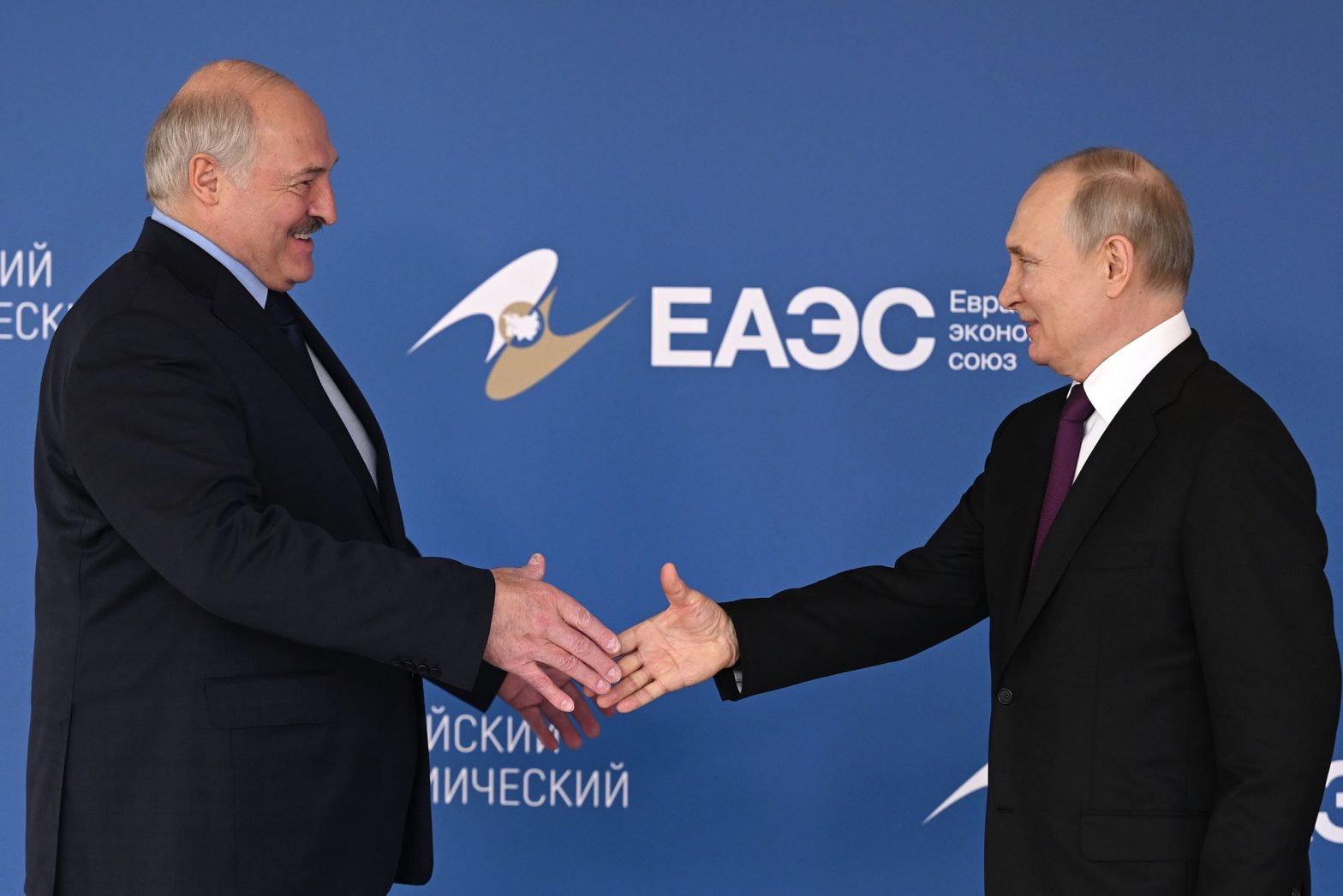Belarusian President Alexander Lukashenko embarked on a two-day working visit to Russia, aiming to attend the Eurasian Economic Forum and engage in discussions with Russian President Vladimir Putin. The visit comes at a critical juncture for the region, as the leaders of Eurasian Economic Union (EAEU) countries gather to evaluate the progress of strategic decisions for the development of Eurasian economic integration and review the international activities of the union. Lukashenko’s presence at the forum serves to reinforce the long-standing alliance between Belarus and Russia, despite facing mounting international scrutiny over their actions in neighboring Ukraine.
The Supreme Eurasian Economic Council summit, scheduled for Thursday, offers an opportune platform for Lukashenko and Putin to discuss bilateral matters and deepen economic cooperation within the EAEU. The Kremlin has confirmed that talks between the two leaders are expected, underscoring the significance of their relationship and the collaborative agenda they seek to pursue.
It is noteworthy that Lukashenko’s visit follows his recent attendance at the May 9 military parade in Moscow, where he fell ill shortly thereafter. The Belarusian president’s sudden illness raised speculation and prompted concerns about his health, although official statements have not provided specific details regarding his condition. However, his appearance at the Eurasian Economic Forum signals his recovery and his commitment to regional engagements.
Belarus has emerged as one of Russia’s few staunch allies in its conflict with Ukraine. While Belarusian military forces are not directly involved in the fighting, the country played a pivotal role in aiding Russia’s invasion of Ukraine in February 2022 by granting access to its territory for Kremlin troops. This cooperation drew widespread international condemnation and further strained Belarus’s already tense relations with Western nations.
Moreover, in March, Putin announced Russia’s intention to station tactical nuclear weapons in Belarus, along with the construction of a storage facility set to be completed by July. This development has heightened concerns within the international community and exacerbated tensions in the region. Critics argue that such actions increase the risk of escalation and undermine regional stability.
Lukashenko’s visit to Russia against this backdrop raises questions about the extent of Belarus’s alignment with Russian interests and the potential consequences for regional dynamics. While the Belarusian president seeks to solidify economic integration within the EAEU, the close ties with Russia have drawn criticism and placed Belarus in the spotlight of international scrutiny.

The Eurasian Economic Forum provides an opportunity for Lukashenko to address these concerns and project a positive image of Belarus as an active participant in regional cooperation. However, it remains to be seen whether the discussions between Lukashenko and Putin will touch upon contentious issues, such as their involvement in Ukraine or the stationing of nuclear weapons. The outcome of these talks could have far-reaching implications for the geopolitical landscape of Eastern Europe.
As Lukashenko and Putin engage in dialogue during the summit, it is essential to consider the broader context and ramifications of their actions. The international community will be closely watching to gauge the trajectory of Belarus-Russia relations, particularly regarding their stance on Ukraine and the potential impact on regional stability.
While Lukashenko’s visit to Russia aims to foster economic integration and strengthen ties, it is crucial to approach this alliance with caution and ensure that Belarus’s actions align with the principles of international law and respect for the sovereignty of neighboring states. The outcome of Lukashenko’s discussions with Putin will undoubtedly shape the region’s future and determine the level of international support or condemnation Belarus receives.
In an era marked by geopolitical complexities and shifting alliances, the visit of Lukashenko to Russia underscores the delicate balance between regional cooperation and global concerns over actions that may destabilize the fragile peace in Eastern Europe. The repercussions of their discussions and decisions will reverberate far beyond the confines of the Eurasian Economic Forum, influencing the geopolitical landscape for years to come.
©world-news.biz
